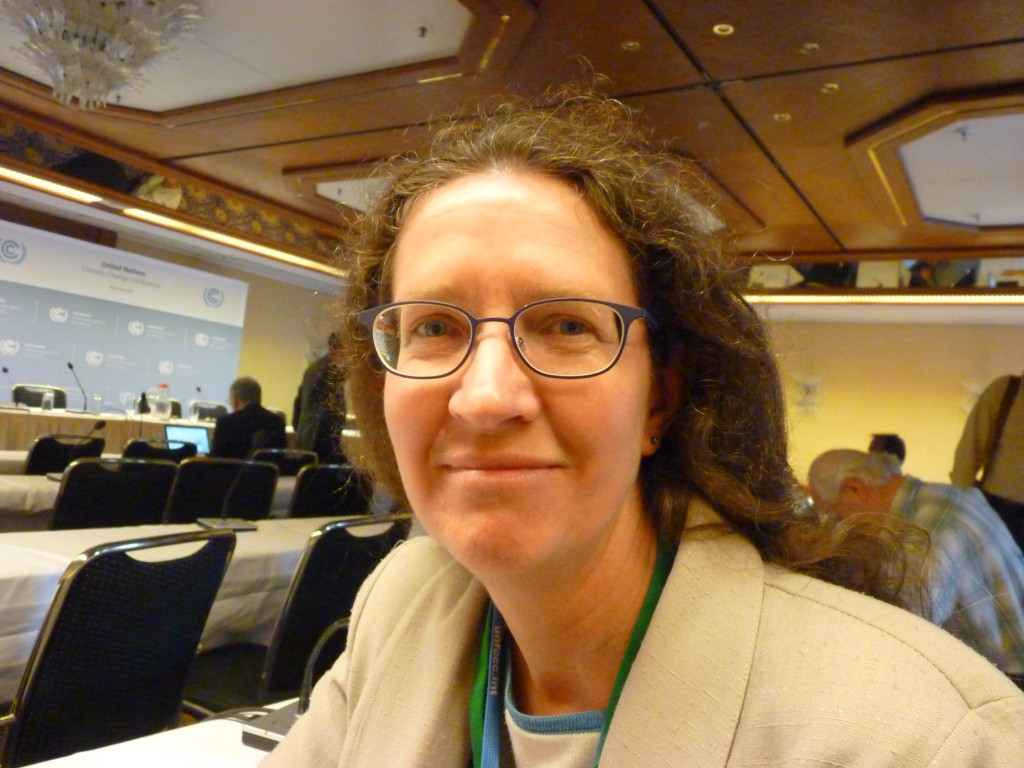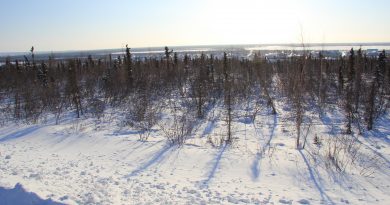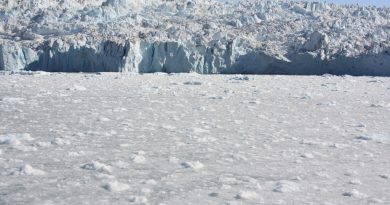Ice-Blog: Climate talks at glacial place?
![]()
![]()
 Who would have believed it? It has been a long time since the routine UN climate talks in Bonn aroused much in the way of enthusiasm.
Who would have believed it? It has been a long time since the routine UN climate talks in Bonn aroused much in the way of enthusiasm.
Frustration or even despair were more likely the order of the day.
Since the debacle in Copenhagen in 2009, it has been hard to stir up any kind of optimism in the climate debate. The planet is heating up, CO2 emissions are still on the increase, the ice caps are melting, storms, floods and droughts are causing huge problems even for wealthy, industrialized nations.
At the same time the UN negotiations have been slithering along at glacial pace. One upon a time, that meant very slow. But with increasing warming, even the ice giants are on the move. The sea level is rising – and maybe even the UN climate talks are sliding into motion.

A glimmer of hope from the climate sinners?
In recent years, the UN summer meetings on the banks of the Rhine were at best good to fill a hole on a news-slack day. This time, it was different. Just before the talks started, US President Barack Obama got the “snowball” rolling with his announcement he would use the Environmental Protection Agency to impose tough restrictions on emissions from coal power plants.
It’s time for innovative solutions all round. Extreme weather at home has taught America to fear climate change. Obama wants climate action to be his legacy. That can only be a good thing for all of us.
When China then came out with the intention to cap its emissions, the world really had to sit up and take notice. Even the to-ing and fro-ing on how, why and when, or whether it was just the “personal opinion” of a high-ranking climate representative could not dampen the enthusiasm. For the first time ever, it looks as if the world’s two biggest emitters could actually be prepared to act.
Meanwhile more encouraging signs came out of India and Latin America.

Renewables on the ‘up’
At the start of the Bonn talks, a broad coalition of environment, human rights, indigenous and women’s groups demonstrated outside the conference venue for a worldwide switch to renewable energies. By the end of the talks, 60 countries had signaled support for a 100 percent switch by 2050. German Environment Minister Barbara Hendricks had to admit Germany was not making its targets right now, but would introduce new measures to reach its ambitious goal of a 40 percent emissions reduction by 2020.
If the EU could also bring itself to increase its targets and regain its old position as a climate leader, if the energy crisis caused by the Ukraine dispute could convince politicians that renewable energy is the key to energy security and independence, Europe could well be on its way to hosting a conference that will give birth to a new global agreement.
And even if the UN structures cannot move fast enough: renewable energies are on the rise. UNEP figures show more investment in renewables in the last year than in oil, coal and gas together. Even outside the UN context governments, companies and consumers are finding reason enough to reduce fossil fuel consumption. All is not yet lost for the melting icecaps. The climate snowball is gathering speed.




